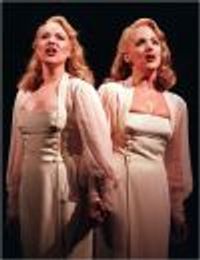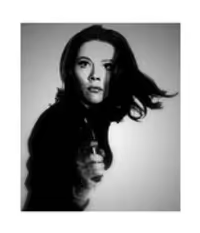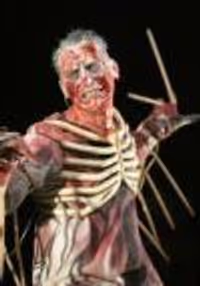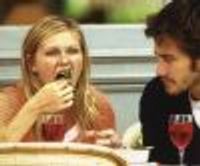Currently Reading (Take 2)
#300re: Currently Reading (Take 2)
Posted: 9/10/10 at 6:09pmYES! She was a total BIOTCH! I couldn't believe some of the mentality of those women in that book.
#301re: Currently Reading (Take 2)
Posted: 9/10/10 at 6:09pm
Currently re-reading
The Help 
#302re: Currently Reading (Take 2)
Posted: 9/10/10 at 6:22pmStockard, it's not suprising but still gets under my skin.
Plum
Broadway Legend Joined: 3/4/04
#303re: Currently Reading (Take 2)
Posted: 9/10/10 at 6:27pm...So I'm the only one who loathed The Help and couldn't finish it?
#304re: Currently Reading (Take 2)
Posted: 9/10/10 at 7:21pmWell I am only 3 chapters in. But I think I will finish it. I want to finish it because they are having events surrounding the book here in Denver that I want to attend.
#305re: Currently Reading (Take 2)
Posted: 9/10/10 at 7:30pmIt starts out a little slow, but it gets really good.
#306re: Currently Reading (Take 2)
Posted: 9/11/10 at 12:09am
Completly w you Plum. The Help just jangled all my nerves.
Finished The Yiddish Policeman's Union by Chabone. I found it a little picaresque but it got stronger as it progressed. The ending just gave me a bitter smile.
STILL working on the Seven Pillars but have to take frequent breaks due to the style. I'm also working on The Winter Vault by Anne Micheals.( also wrote Fugative Pieces) Her other job is as a poet and it shows in her writing. And I went to school with her. (it's not nepotisim but I don't know what to call it)
#307re: Currently Reading (Take 2)
Posted: 9/11/10 at 1:44am"The Help" hits a nerve with me because my mom was a maid at the very same time this book is set in.
Plum
Broadway Legend Joined: 3/4/04
#308re: Currently Reading (Take 2)
Posted: 9/12/10 at 2:51am
The most thing that bugged me the most overtly about the story was the way the black characters were written as speaking/thinking in dialect, while the white characters were not. WTF? Did Southern white women not have any accent or dialect in the 60s? It's an othering device that drove me nuts throughout.
And right now, sadly, I'm reading The Law of Patents, by Craig Allen Nard. Oh, school.
#309re: Currently Reading (Take 2)
Posted: 9/12/10 at 9:28am
Currently reading: The Girl Who Kicked the Hornet's Nest by Stieg Larsson, and The Merchant of Venice by some playwright or other.
So a spot of Shakespeare, and a smidge of Swedish crime thriller. Sounds about right! ![]()
#310re: Currently Reading (Take 2)
Posted: 9/12/10 at 9:40amRecently read The Hunger Games trilogy, which I was actually fairly impressed with. Now reading Hard-Boiled Wonderland at the End of the World by Haruki Murakami, but I haven't really been compelled to pick it up often.
#311re: Currently Reading (Take 2)
Posted: 9/12/10 at 10:01amI am reading Jonathan Franzen's utterly BRILLIANT new book Freedom...I highly recommend it. If you enjoyed The Corrections, you will LOVE this book. I am seeing him do a reading this month at The Free Library in Philadelphia and am sure I will want to start screaming like a fangirl the minute I see him!
#312re: Currently Reading (Take 2)
Posted: 9/12/10 at 10:55am
I didn't like The Corrections as much as everyone else did. But I'm interested in Freedom.
The best book I read all summer was The White Tiger by Aravind Adiga. Fantastic.
#313re: Currently Reading (Take 2)
Posted: 9/12/10 at 1:13pmI've never even heard of The Corrections. Like I said earlier, I'm all about easy reads this summer. I'm getting ready to start a book called Invitation to Provence by Elizabeth Adler.
#314re: Currently Reading (Take 2)
Posted: 9/12/10 at 5:58pm
Just finished Alan Moore's breathtakingly brilliant Watchmen, the first graphic novel I've ever read.
In the middle of the fascinating God Is Not Great: How Religion Posions Everything by Christopher Hitchens, and about to start American Gods by Neil Gaiman.



-best12bars
"Sorry I am a Theatre major not a English Major"
-skibumb5290
Plum
Broadway Legend Joined: 3/4/04
#315re: Currently Reading (Take 2)
Posted: 9/12/10 at 6:49pmCommon as Air: Revolution, Art, and Ownership, by Lewis Hyde
#316re: Currently Reading (Take 2)
Posted: 9/12/10 at 7:36pmPlum, I am not having a problem with the dialect. The white people are talking kind of as I would expect and using words and terms I would expect them to. The author lived there so I am assuming she is pretty much on target with it. I actually cheated a bit and read a bit of her her acknowldgements at the end after your post to see if she says anything about the way she wrote it. No explanation but they were interesting. The book has really pulled me in and I am sure I will be reading well into the night.
#317re: Currently Reading (Take 2)
Posted: 9/12/10 at 8:37pmI just started a silly little book about a chick who goes to Italy with her friend and her friend's fiance for them to elope and the dude who's the best man she HATES. You just know they are going to end up together. I read the entire Elizabeth Adler book I mentioned earlier in one day. I probably should up my game and read something meaningful, but with the kid chattering away in the background it's hard to concentrate.
Plum
Broadway Legend Joined: 3/4/04
#318re: Currently Reading (Take 2)
Posted: 9/12/10 at 10:03pm
The white people are talking kind of as I would expect and using words and terms I would expect them to.
If the black characters' speech is going to be written quasi-phonetically, the white peoples' should be, too. And Southern ladies in the 60s didn't speak with a flat newscaster's accent. If you're writing the Southern white women speaking in "straight" English - the "neutral", "default" choice - and then you write the Southern black women in heavy dialect, you're saying that the black women speak something other than "default" speech. The white women are like you, the reader, and the black women are not. It's privileging the accent and dialect of the white women. Does that make any sense?
Not to mention that even if you accept the dialect itself (it doesn't seem so accurate to me) the very use of it by the author is inconsistent within the story. I can't give examples right now because I don't have the book, but try to see if she follows her own rules about dialect use - she really doesn't.
But that's more technical errors that an editor should have caught. In the end, I just didn't find the book to be nearly as compassionate about the experiences of black women as it thought it was. The plot reeked of privilege for me. But I can't deny that a lot of (admittedly white) people I know enjoyed it.
#319re: Currently Reading (Take 2)
Posted: 9/12/10 at 10:38pm
Plum, I actually see what you mean. As far as the black dialect, I think the author is trying to get as close to it as possible. In other books I have seen, for instance, the word "lord" as "lawd". But I have actually heard it as "law". That threw me for a bit but I think she is correct for the time and place. My family pronounced it "lawd", with a d.
I think I mentioned that I hope to attend some of the events/talks planned around the book and I would like to mention what you pointed out. It will be interesting to see if there are any other black people participating who bring this up.
How far did you get in the book? I think you said you didn't finish it.
Sorry if I am kind of "hijacking" the thread but it is nice to have a bit of dicussion about the book.
Plum
Broadway Legend Joined: 3/4/04
#320re: Currently Reading (Take 2)
Posted: 9/12/10 at 11:16pm
I skimmed the whole thing, so I have a rough idea of the whole plot. You can't spoil me, if that's what you're worried about. :)
Oh, and right now I'm reading my Employment Law casebook, but I'm pretty sure no one's interested in that.
#321re: Currently Reading (Take 2)
Posted: 9/12/10 at 11:34pm
Wasn't trying to give away spoliers. (Was actually trying not to say much) Was just wondering how much you read. I am almost 200 pages in. Of course to each his or her own, but I think it deserves more than a skim. There are things tucked away that I think will come to light later in the book.
oh, I know a few people that may want to read your employment law book!
#322re: Currently Reading (Take 2)
Posted: 9/14/10 at 11:41am
Finished "The Help". Not he ending I expected but a very good read. The ending reminded me of a movie I saw that was based on a book and I don't know if the book and the movie had the same ending.
Plum, I was poking around reading about the book and on Wikipedia under criticisms it said:
"Critics have questioned Kathryn Stockett's use of the African American vernacular throughout the book, while not doing the same with Southern White characters."
Some critics don't see how a white woman can write about this. They don't mention that at the end of the book there is a section on the author's childhood in Mississippi and how she talks about her maid. But now the vernacular thing is in the back of my head and I am trying to find out her explanation for it. She says the novel is largely fiction but, at least I, couldn't help think that Skeeter was partially modeled after the author.
#323re: Currently Reading (Take 2)
Posted: 9/14/10 at 9:56pm
New to this thread, and I just skimmed it and saw some interesting suggestions.
I finished reading "One Day" by David Nichols about a week ago. It was mentioned in Entertainment Weekly almost every week over the summer, so I'd thought I'd give it a try and WOW. It took me a few chapters to get into it, but once I did it was wonderful. And the ending really threw me for a loop.
I started "Enchantment: The Life of Audrey Hepburn" by Donald Spoto. It is definitely an interesting read, although anything Audrey Hepburn will get my attention!
Send in the clowns...Send in the crowds!
"I prefer neurotic people. I like to hear rumblings beneath the surface."-Stephen Sondheim
#324re: Currently Reading (Take 2)
Posted: 9/15/10 at 12:55pmI just looked that up and read a review of it [tos]......it looks really good.
Videos









![[tos]fan999 Profile Photo](https://cloudimages2.broadwayworld.com/userphotos/ndtn-500_n2.jpg?format=auto&width=200)